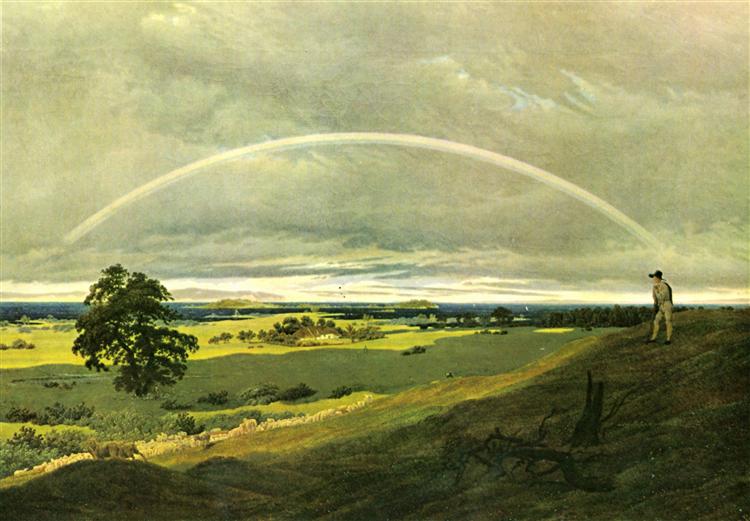
Romanticism / Caspar David Friedrich/
Landscape with rainbow
My pet peeve "science" is archeology. (I have a friend who appears to be have that same distaste for neuroscience)
I trust things that
archeologists say with a gain of salt. But I read them whenever
possible and I find their conclusions fascinating. Hell some of
them might not even be all that wrong. But let's be honest,
Even with the best of intentions and the most extensive training
and expertise, they are merely trying to explain something that
they can never really "KNOW' what they are talking about.
Archeologist and their blood
brothers, the paleontologists, seem to think that they can take
a isolated partial bone from a critter and reconstruct what the
whole animal looked like and its lifestyle. Neuroscientists
look at pretty pictures taken using expensive machines and claim
the "lit up" pieces of a brain tells them about consciousness.
Now, you might think that I disapprove of these activities. Nothing could be further from the truth. I think coming up with theories to explain found phenomenon is one of the higher purposes that a human can pursue. What bugs me is the pure arrogance of not starting out with the simple statement "Here's what I think!"
Science is about a couple of simple things. The first being experiment under clearly-established conditions with tight negative and positive controls inserted at every stage. Ambiguity is anathema. Making public-relations style statements to allow for future funding or to get your name in papers isn't science. Proof in science should be marked clearly with variation noted and overwhelming evidence disproving other explanations.
Very little done in the academy today can actually meet the constraints of the scientific method. Even less is done in industry. The need to meet payroll precludes anything other than the ugly bastardization of the method.
But, I do still love to read
their stuff. I just never read the conclusions. I am careful
to understand the limitations of the materials and methods. I
carefully examine the processes used.
You can still get a lot of
good information from even a flawed experiment. just don't call
it a truth unless you are a documented member of the clergy.